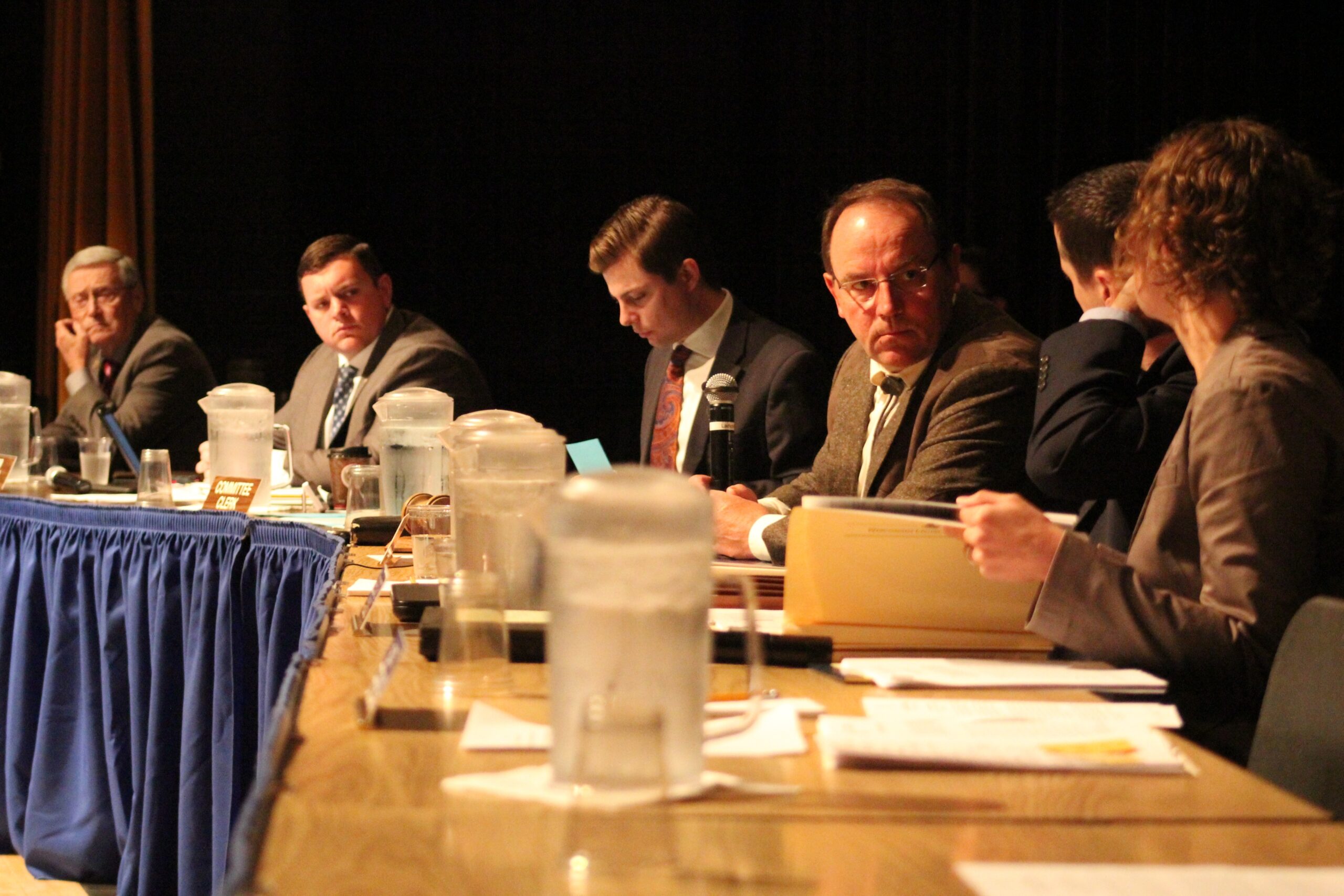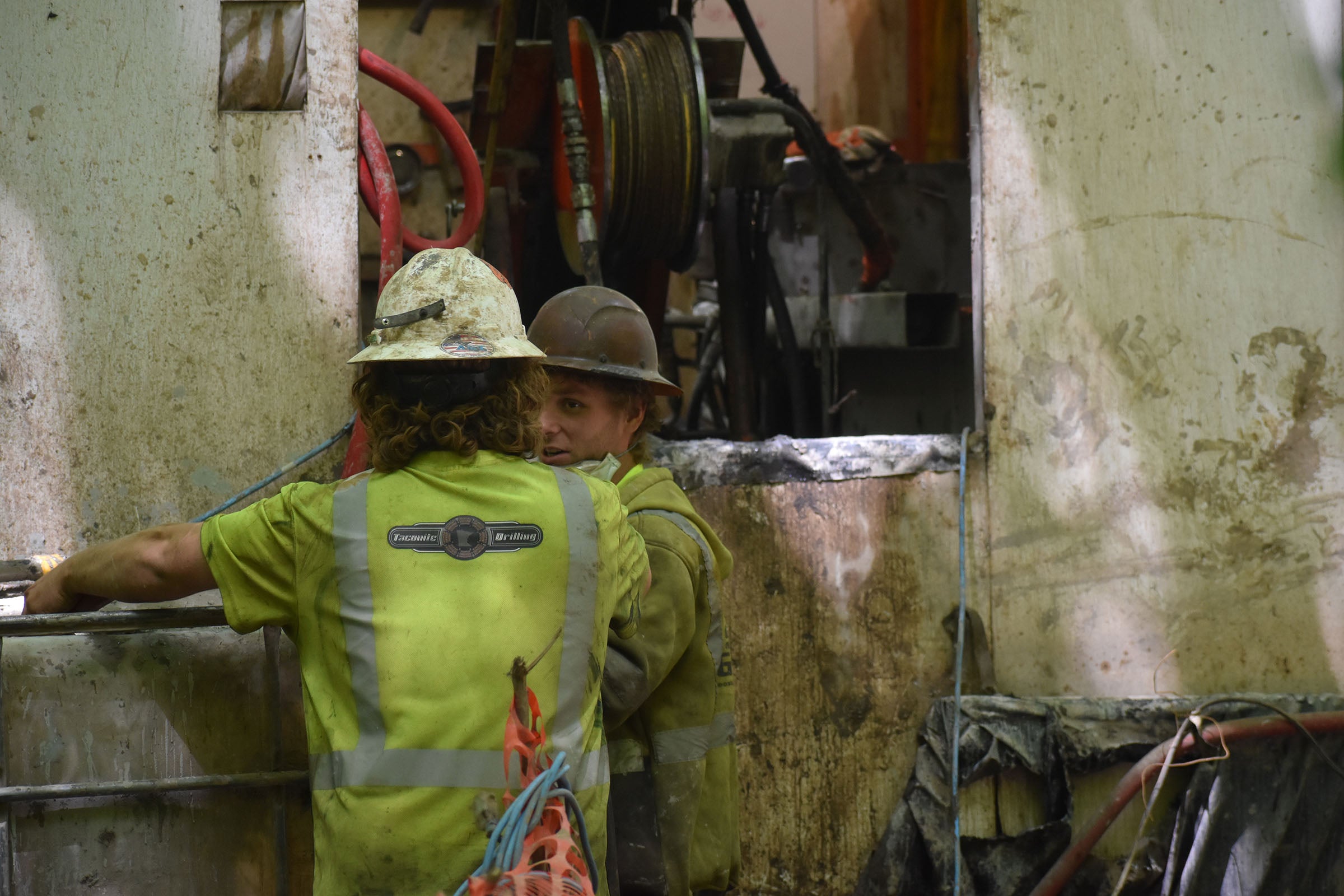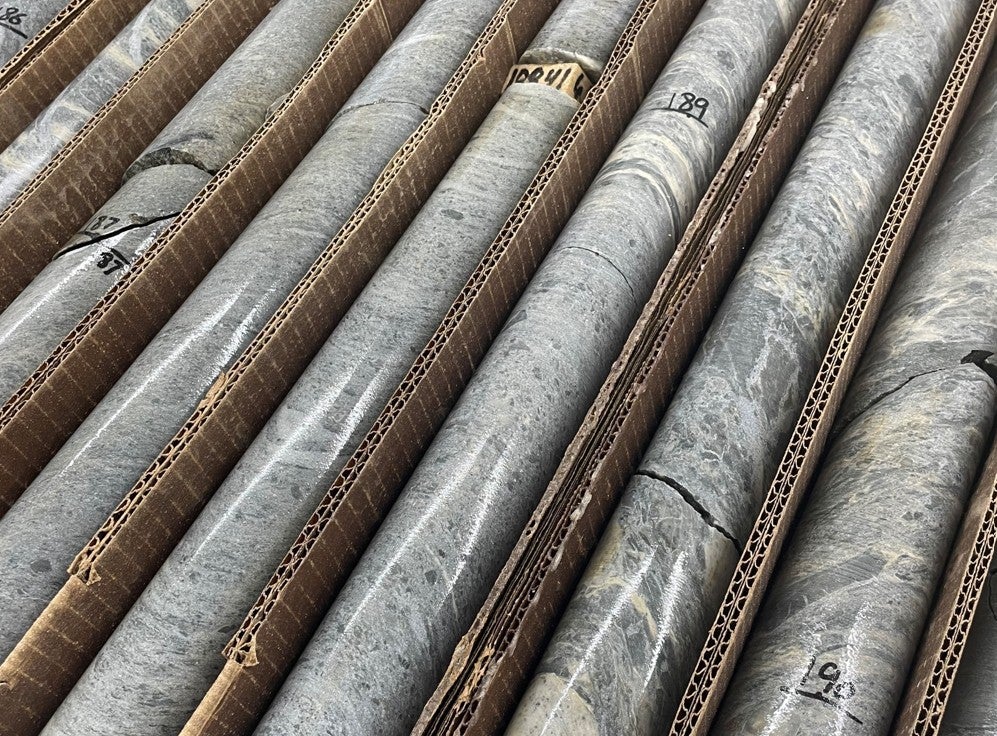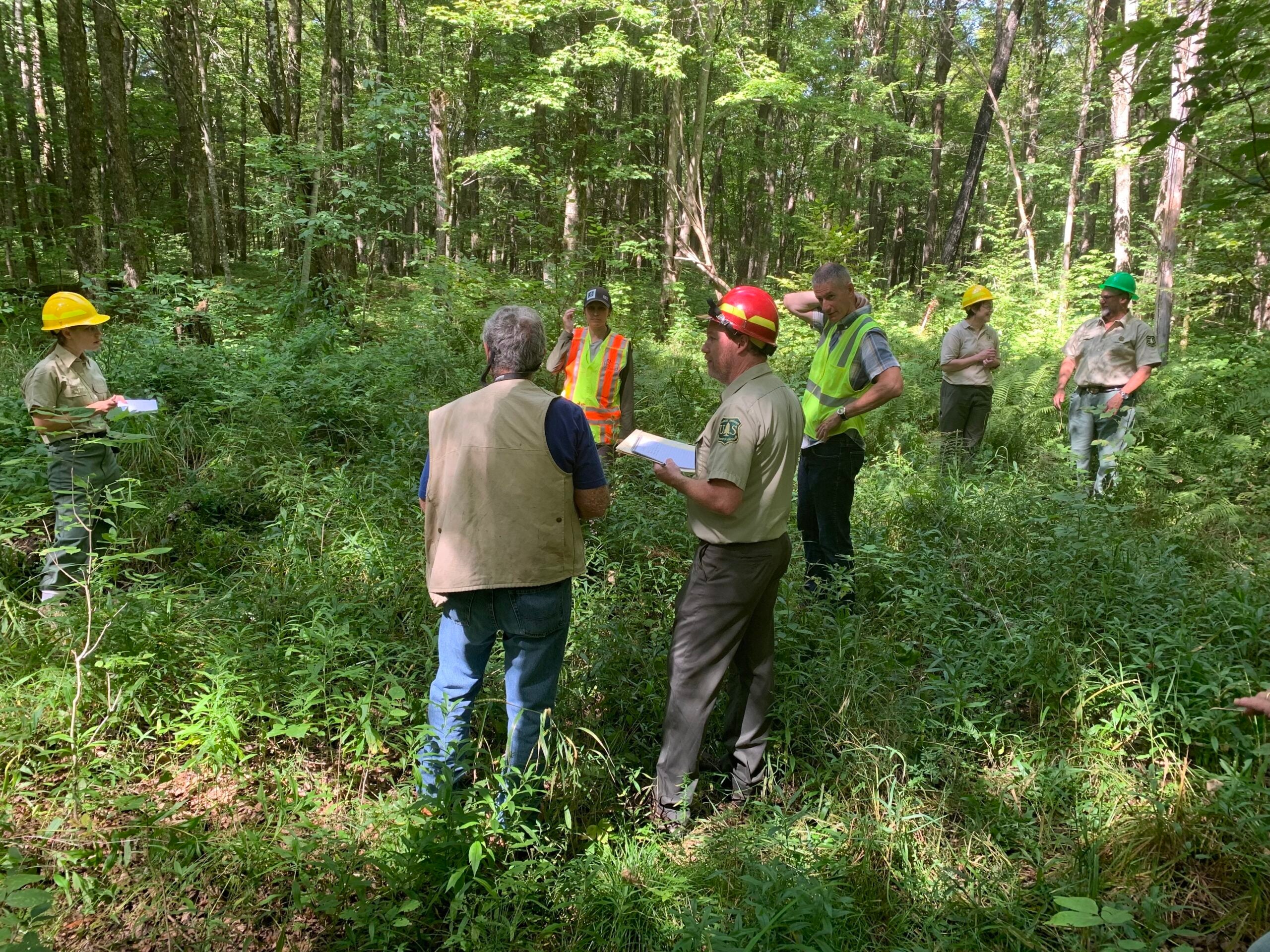Lawmakers held a public hearing Thursday in Ladysmith about a bill that would eliminate Wisconsin’s moratorium on sulfide mines. Fewer than 100 people attended the hearing.
Under current law, mining companies are required to provide proof of a sulfide mine that’s operated for 10 years and been closed for 10 years without doing environmental harm before a sulfide mine may be permitted in the state. However, companies would no longer have to meet that requirement under a bill recently put forth by Sen. Tom Tiffany, R-Hazelhurst, and Rep. Rob Hutton, R-Brookfield.
Fewer than 100 people attended the meeting. Rich Kremer/WPR
News with a little more humanity
WPR’s “Wisconsin Today” newsletter keeps you connected to the state you love without feeling overwhelmed. No paywall. No agenda. No corporate filter.
Supporters of the bill at the public hearing said the change would pave the way for mining projects and serve as a shot in the arm for Wisconsin’s economy, including Lucas Vebber, environmental and energy policy director with Wisconsin Manufacturers and Commerce.
“It will benefit every corner of Wisconsin, open the door to significant investment and job creation and ensure that our state’s pristine environment is maintained for future generations,” he said.
Opponents of the bill, including Dave Blouin, state mining committee chair with the John Muir Chapter of the Sierra Club, said they share lawmakers’ desire for a thriving economy and workforce.
“But, it can’t be at the expense of the public’s legal rights,” he said. “Those rights require that the Legislature consider carefully any threats to public health via air and water, and guard against any threats to our treasured lakes, streams, wetlands and other natural resources.”
Much of the testimony centered on the state’s Flambeau copper-gold mine, which was the only sulfide mine successfully permitted, operated and reclaimed in Wisconsin.
Environmentalists brought a lawsuit against Flambeau Mining Co. several years ago for polluting a small stream near the mine site. A federal judge ruled the company violated the Clean Water Act, but also noted discharges into the stream were small. Supporters of the bill highlighted that the Wisconsin Department of Natural Resources has said the company remained in “substantial compliance” with state standards.
Steve Donohue, a hydrologist with Green Bay-based Foth Infrastructure and Environment, said the Flambeau mine was one of the state’s most contentious projects.
“It received extensive regulatory oversight. It was operated in a water-rich environment on the banks of the Flambeau River. It was reclaimed, was and is protective of the Flambeau River and is a great success,” he said. “It is an engineering achievement and should be celebrated by the state by rescinding the moratorium. What the state was seeking when it passed the moratorium has been met right here in Wisconsin.”
Former DNR Secretary George Meyer, who oversaw the Flambeau Mine during the late 1990s, opposes the “prove it first” provision under the current law. However, he said simply repealing the state’s mining moratorium law isn’t the answer.
“The mining moratorium section of current law should not just be deleted, but rather should be replaced by a requirement that nonferrous mining applicants submit pollution abatement technology that has been proven effectual and reliable in meeting environmental standards,” Meyer said.
Lac du Flambeau Tribal Member Lawrence Mann said he wants to make sure the state’s water quality standards remain intact.
“We got to keep this pristine. We got to keep it pristine for (my son) and for the next generations and for the people that can’t talk,” he said. “If we don’t stand up now, I don’t want to tell my kid in 20 years why we can’t eat the fish, why we can’t eat the deer.”
Tina Van Zile, environmental director for the Sokaogan Mole Lake Band of Lake Superior Chippewa, testified on behalf of the tribe against the bill. She said the hearing brought back memories of the tribe’s fight against the proposed Crandon mine.
“Some of the same things they were saying back then you’re saying now. Still,” she said. “I’m still here trying to defend the things that we hold sacred.”
The state’s mining moratorium law came about in part due to widespread tribal opposition to mining during the 1990s. The law was passed in 1997 and signed into law by Republican Gov. Tommy Thompson.
Editor’s Note: Rich Kremer contributed reporting for this story.
Wisconsin Public Radio, © Copyright 2025, Board of Regents of the University of Wisconsin System and Wisconsin Educational Communications Board.





